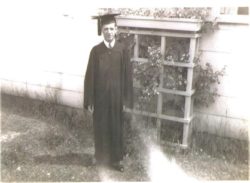
Greetings. I hope this finds you and your loved ones safe and healthy during this COVID-19 pandemic. In my last post, I promised I’d write about our trip to the Galapagos Islands. I will do that, but first I feel compelled to write the following.
Public health and my father
For reasons I’ll tell you about, the current viral crisis triggers memories from my childhood. I grew up in the 1950s and 1960s probably more aware than my classmates about viruses and bacteria living with us on the planet—and how dangerous they could get.
Today is March 26, 2020, and the count of positive cases of COVID-19 in the U.S. just passed 64,000.
A kid’s lessons on viruses and bacteria
I am the younger daughter of Anne Lamy (1920 – 1968) and Joseph A. Lamy (1912 – 1997) who, with my older sister, lived in Salisbury, Maryland, where I was born in 1952. My father, a scientist, spent his professional career of twenty years working in public health as a microbiologist. That explains a few things about me, i.e. I love to clean.
Back then, America spent a lot of money helping the armed forces—who fought to keep the despicable Nazis from taking over the world—to rebuild their lives post-WWII.
Benefiting from the G.I. Bill, my dad attended the University of New Hampshire and earned his bachelor and masters degrees in microbiology. He understood and respected the life of micro organisms: life forms unseen by the naked eye. He taught me that some bacteria were good for humans; some were bad.
Dad made me aware of bacteria and viruses REAL existence. First, he taught me at home. When he said, “Charlene, put that milk bottle back in the frig right now,” I knew why.
Honoring public health workers
Today I write to honor my father and dedicated health care workers around the globe working in hospitals, clinics, makeshift parking-lot virus-testing locations, and health departments putting their lives on the line as they treat victims of the deadly Covid-19 (the coronavirus). Thousands of health professionals today are in dire need of more proper equipment to do their jobs, protect themselves, and keep patients alive. Every day we hear on the news, “Where are the ventilators?”
As more people are testing positive for this virus, and many are dying from it (not only in the elderly population), images of my father standing at his microscope, wearing his white starched lab coat, flash before my eyes.
What would my father say today?
Dad taught me that bad bacteria make us sick, but we can usually be cured by taking antibiotics. Viruses are different. Antibiotics do not kill them. Today, scientists are working madly to figure out a vaccine to protect us against Covid-19. They also may find a treatment to give those who are sick from it. Please send them positive thoughts or prayers, if you pray, for their success. Dad would appreciate that.
I know my father would emphasize washing hands and staying away from other people, what we now call “social distancing.” He’d say, “It’s a matter of not only keeping yourself from getting the virus from others who may be carrying it, but you might even have it and could infect them.”
To Dad, respecting others was just part of being a good human being.
With the onset of today’s pandemic, those lessons matter NOW.
Dad’s microbiology lab
My father’s job from 1950 until 1970 was Chief Scientist at the Wicomico County Health Department located in downtown Salisbury, a walkable distance from our house. Until he bought a car, he walked to work, about a mile. The lab was housed on the second floor of a brick building named the Watson Building next to the hospital. Dad and his staff studied public health-related things like contaminated food, summertime’s seafood, and bacteria and virus samples sent from the hospital and from doctors’ offices. I’m sure they had lots of other related tasks I am not aware of, but I know one thing: that lab felt like another world, but also felt related to our family’s kitchen.
Dad’s lab and our kitchen were both spaces for cooking things up. In the lab, instead of a kitchen stove, there was a special hot air oven to sterilize glass utensils the staff had used. Instead of a kitchen toaster, mixer, and cookie jar on the counter, there were test tube racks, glass “vases” and glass pipettes, and Bunsen burners. I saw these things when I visited the lab after school sometimes. As soon as Dad opened the door to the laboratory, a flood of stinky smells engulfed me. (That is not an analogy to my mother’s cooking.) It took a few minutes to get used to the odors, but I didn’t care too much about them because I wanted something more.
Dad would let me look through the microscope! He’d adjust the lens for me to view purple stained creatures moving around on the glass slide held in place. That microscope was a door into an invisible world. Also, I was allowed to stand by the “oven” looking through the glass-door to see petri dishes smeared with special gel that held samples of bacteria, growing them until Dad could identify them.
I also loved to watch Dad run the test tube machine that shook the tubes back and forth at lightning speed. I got dizzy trying to see what was inside them.
What would Dad think of this pandemic?
A neighbor recently asked me what my dad would’ve thought about our coronavirus pandemic and the ways it is being handled.
“He’d be heartbroken over the sick people and the ones who’ve died,” I said, “And he’d be appalled and horrified at the lack of essential medical equipment in the richest country in the world.”
I also knew he’d bemoan the ignorance of the “general public” who are getting misinformation about the seriousness of this virus’s ability to sicken and kill and how easily it can spread. He would’ve shaken his head at the cavalier attitude of those who even deny its existence.
On the positive side, I’m confident he’d applaud the efforts of leaders who institute social distancing and/or “stay home orders” to deter the spread of the virus.
My father’s personal story
Now I’ll let you hear from him. In 1992, I asked my father to write down some highlights about his life. I sent him a journal to use. This would be a gift for my daughter on her 17th birthday. He did what I asked. Here’s a bit from the journal:
“[While living in Manchester, New Hampshire] In 1934 [age 22 yrs.] I read Arrowsmith by Sinclair Lewis. This story got me interested in Public Health Lab work. So I enrolled in the International Correspondence School of Scranton, PA. The courses consisted of General Chemistry, Analytical and Quantitative and Organic Chemistry. The Quality and quantity courses included lab exams of different chemicals and chemical compounds, including unknown compounds that were sent to us by the school for analysis, the results of which had to be submitted to the school for grading.
The required kits of lab equipment were sent by the school. With my father’s help, I set up a little lab in a bedroom in which gas was available for Bunsen burner, etc. Had a window hood with exhaust fan to take care of fumes. I slept on a couch in the living room from then on.
Fortunately I was working and able to pay the bills. Studied 3-4 nights a week and some on Saturdays. … I had a close friend at work, J___ K___. He and his girlfriend L___ were married in Sept. ’39 the day the Germans invaded Poland.
Through reading and studies, I felt that I had to find employment in some type of lab work, preferably in the medical field. Completed the L.C.S. course in early 1940. Things were getting hot in Europe then – the US Army was on a recruiting drive, so decided in summer of 1940 to enlist in the Army Medical Dept. and work towards obtaining an assignment in an Army hospital. Enlisted on Sept. 21, 1940, after a short basic training period I was assigned to Fort Adams Station Hospital on the outskirts of Newport, R.I., at first, for duty in the out-patient clinics helping physicians and then in the lab where I received some training in routine lab work.
Remained at Fort Adams until Spring 1944 when I was sent to Fort Getty, R.I. for the same type of duty. This hospital was under the same command as Fort Adams. Some of us were shuffled from one hospital to the other as needed. …
[In the Philippines] Some of the things observed during the stay at the 80th Gen. Hospital proved to be very sad and unsettling in many ways. Soldiers brought in every day with all types of wounds and tropical diseases. The suffering of the native people – men, women, and children, waiting in line, as we left the mess hall at every meal waiting and hoping that they would get some of our leftovers.In spite of the sad scenes around, we managed to take advantage of the learning opportunities in the examining of all types of specimens for tropical diseases, etc.
By August 1945 Japan was finished and by November, demands on the hospital diminished considerably, with the result that many of us returned to the states for discharge from the service. …”
Undertow: a revealing scene with Dad
I wrote about my father in my memoir, Undertow. The following scene took place when Dad visited me in Greenville, N.C., after I’d told him I was dropping out of college to join The Way. He was trying to get me to forget that and come home.
“The next morning, surprisingly, Dad had a few more things to say. He took me out for breakfast and told me a story. Whether he meant to shame me or shake me out of my little world, I’m not sure. We ate our eggs, bacon, and toast while he temporarily buried his animosity to recount a time during World War II when the Army stationed him in the Philippines and changed the direction of his life.
Before the Army got him, in order to get some education after dropping out of high school—to work in a shoe factory and help support his family—he’d completed home study courses in bacteriology and chemistry, aiming to become a scientist. When the Army ran an enlisting campaign, he joined and was assigned to Fort Getty, Rhode Island, where he met my mother, Anne Rochefort, working as a clerk-typist. They married in 1942. Later, the Army sent him to the Philippine Islands to Quezon City near Manila on Luzon, a mosquito-infested South Pacific island, where, like many soldiers, he contracted the dangerous disease malaria.
“I became so sick,” he said, “the doctors said I would die.”
With a wife and baby, my sister, waiting back home, he struggled to survive.
“I asked God to spare me,” Dad said. “I told God that if He would save me, I’d dedicate my life to public health.”
He recovered and kept his word. Humility was something I’d not noticed in Dad for a long time, but that morning I let down my defenses enough to see a man who’d humbled himself before God. He did good work for humanity and for the God he served, as I was trying to do. His job at the Public Health Department back home took on new meaning.”
Heed warnings from expert scientists about Covid-19
Today, public health officials warn us to get reliable information about the coronavirus. Don’t ignore warnings to “social distance.” Stay at home, wash your hands, take care of yourselves. Trained scientists in this field know what they’re talking about.
Please be safe.
To start the slideshow, click on the first photo.
Thanks for reading. Stay safe.
Your writer on the wing,
Charlene

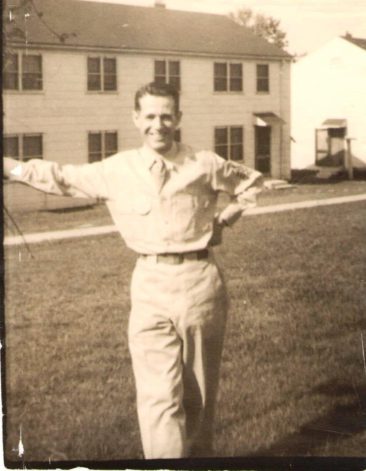

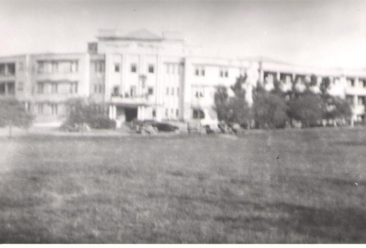
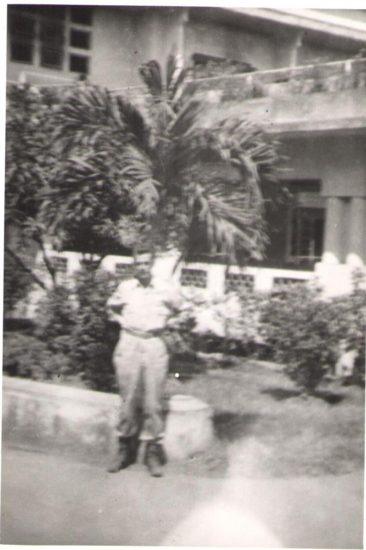
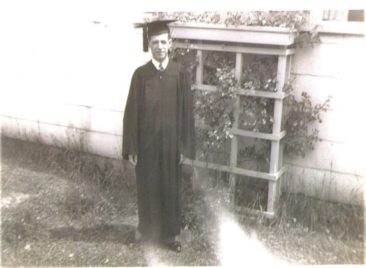





Rob Ruff
I would like to have met your Dad. Thanks for sharing, Charlene.
Charlene L. Edge
Me, too.
Steve
It’s always enlightening to read your posts, Charlene. Thank you.
Btw, I think the public health authorities got it right to encourage distancing, but I’m not sure they properly characterize it. What’s important is physical distancing.
We can still be socially close online. 😉
I’m reading a history of the 1918 Spanish Flu worldwide pandemic. It was written well before this year. but the author makes it very clear that the most significant factor that made it go global was physically crowded conditions.
On the other hand, I’m encouraged that (as Rebecca Solnit wrote in her book on A Paradise Built in Hell) I see people embracing community where I live, not unlike we saw just after 9/11/2001. That’s in direct contrast and contradiction to a sad minority still distracted by hate and fear of “the other.”
We will survive. Thanks again. 🙂
Charlene L. Edge
Good to hear from you. Take good care, Steve.
Jill Hackworth
Charlene, I just got done with your book, Undertow and really enjoyed it because it gave me a little more detail of the inner workings of the way. My 2 oldest sisters are in the way. We grew up on a farm outside of Findlay, OH. I would like to correspond with you via email if that’s ok. Thank you!
Charlene L. Edge
Hi Jill, thanks for reading my story. Please send a message through my Contact page at https://charleneedge.com
That will go to my email. I’ll look forward to hearing from you.
Warmest wishes,
Charlene
Salome
Would it surprise you to learn that many followers of the Way are undermining the urgency and severity of covid-19 and are even expressing that the economy is even more important than people’s lives?
Charlene L. Edge
That is sad news …